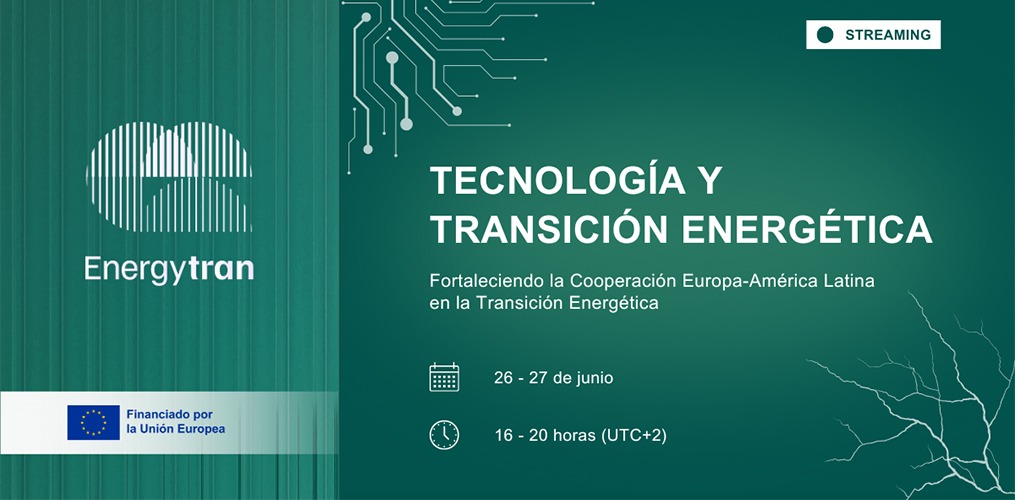
The EULAC Energytran project held its first Virtual Thematic Event on 26 and 27 June, titled “Strengthening Europe – Latin America Cooperation in the Energy Transition“. The event brought together stakeholders from Europe, North America, Latin America and the Caribbean. The participants – around two hundred – included representatives from scientific communities, universities, policymakers, research infrastructures, project managers and private sector actors, alongside the consortium partners. Our Ana Mellado and Maite Irazábal participated to represent LifeWatch ERIC’s role in the project.
This project addresses common energy challenges between the European Union, Latin America and the Caribbean. focusing on improving the sustainability of the energy transition process. The two-day virtual event covered the first two work packages of the Energytran project, about technology and policy innovation. This event is part of a broader effort to promote a sustainable and equitable energy transition in both regions. At the meeting, discussions revolved around five panels:
- Knowledge Exchange in Scientific Cooperation between Europe and Latin America and the Caribbean.
- Challenges and Opportunities in the Energy Sector.
- Environmental and Social Impact of Renewable Energies.
- Emerging Technologies for Energy Sustainability.
- Concentrated Solar Thermal Energy Applications.
The event concluded with key takeaways from OEI, CENAT, CSIC, PUC, and UNNE. It highlighted the importance of knowledge exchange, addressing sectoral challenges and opportunities, and considering the social and environmental impacts of energy transitions. The panels also focused on emerging technologies and applications of solar thermal energy. Ana Mellado – LifeWatch ERIC’s Project Executive Coordinator – gave a conclusion regarding the role of technology and research infrastructures in the energy transition process.
The role of LifeWatch ERIC within the consortium
LifeWatch ERIC will bring its expertise in environmental monitoring and data management, contributing to the project’s transdisciplinary approach. The consortium includes prominent universities and research institutions from Argentina, Chile, Costa Rica, Spain, Mexico, and Portugal. It aims to produce over twenty deliverables, including policy recommendations, and training materials. Moreover, it will create a comprehensive inventory of research infrastructures relevant to the energy transition.
For more information about the Energytran project, please visit the official website: https://energytran.oei.int/